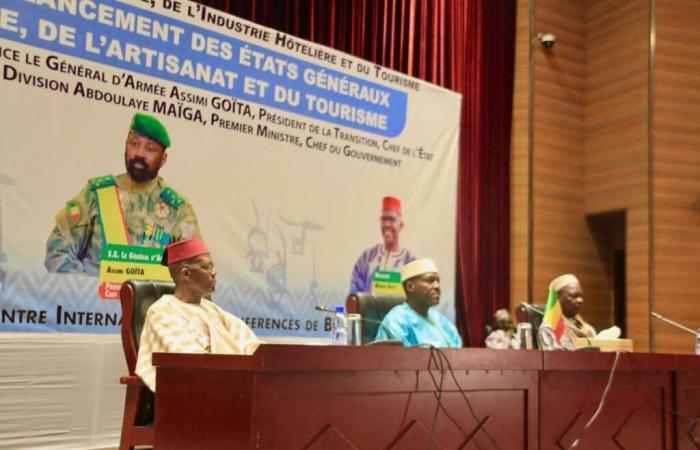2025, dedicated to the “Year of Culture”, this initiative is part of a dynamic of national renaissance, aiming to reposition culture as a central pillar of economic and social development.
Mali officially launched this Thursday, January 9, 2024, the General States of Culture, Tourism and Crafts, under the patronage of the President of the Transition, General Assimi Goïta.
During the opening ceremony, chaired by the Prime Minister, Major General Abdoulaye Maïga, at the Bamako International Conference Center (CICB), the Head of Government stressed that “culture is a fundamental lever for building a Mali Kura.”
These States General, which will be held over three days, aim to diagnose the challenges of the culture, crafts and tourism sectors, while proposing concrete solutions for their restructuring and their influence.
This work, divided into 12 commissions, is called upon to explore key issues, in particular the revitalization of cultural infrastructures, the structuring of craft and cultural industries, as well as the development of a national policy adapted to contemporary challenges. Among the key concepts, “FUGA BA” embodies an inclusive and participatory approach, integrating all stakeholders in the sectors concerned.
-However, despite Mali’s rich heritage, challenges remain numerous. According to official data, although the national budget for 2025 reaches 3,229.886 billion FCFA, allocations to culture historically only represent less than 2%. This situation is explained by the dominant budgetary priorities, notably the 40% devoted to defense and security in a context of persistent security challenges.
These budgetary constraints are hampering the development of Malian culture, although it is recognized for its richness and diversity. Cultural infrastructures, such as regional centers, often lack sufficient resources for their maintenance and development. The absence of an export strategy also limits the international diffusion of Malian arts, whether music, cinema or crafts. Culture and craft professions remain poorly structured, hampering their potential in terms of job creation and economic development. Despite these challenges, Mali has considerable assets. Its tangible and intangible heritage, such as the historic sites of Djenné and Timbuktu, as well as its globally recognized artistic traditions, offer significant potential to strengthen its cultural identity and attract foreign investment.
The Minister of Culture, Mamou Daffé, affirmed that these States General are a unique opportunity to drive profound and lasting change. “This moment belongs to the men of culture,” he declared, reiterating his commitment to translate this initiative into concrete actions. These meetings aim to transmit to young people a rich cultural heritage while providing them with the necessary tools to preserve and promote it. The conclusions of this work will be presented during the closing ceremony scheduled for January 11, 2025, with the hope that they will lay the foundations for a new national cultural policy.
MD/ac/APA






